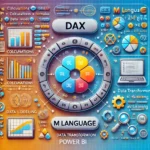Nginx vs. Ngrok: A Comparison for Web Server Management and Tunneling
In the ever-evolving landscape of web server management and tunneling solutions, Nginx and Ngrok have emerged as key players, each serving distinct but equally vital roles. In this blog post, we will delve into the features and use cases of both Nginx and Ngrok, providing a detailed comparison to help you make informed decisions about which tool is best suited for your specific needs.
Nginx: The High-Performance Web Server and Reverse Proxy
Nginx is a versatile, open-source web server and reverse proxy server known for its exceptional speed, efficiency, and scalability. Here are some of its key features:
- Web Server: Nginx excels at serving static content, making it the go-to choice for hosting websites and web applications.
- Reverse Proxy: It functions seamlessly as a reverse proxy server, expertly forwarding client requests to backend application servers like Node.js, Python, or Ruby, and returning their responses to clients.
- Load Balancing: Nginx has the capability to distribute incoming traffic across multiple application servers, ensuring high availability and enhanced overall performance.
- SSL/TLS Termination: Nginx efficiently handles SSL/TLS termination, offloading the decryption process from the application servers, thus enhancing security and performance.
- Caching: Nginx offers robust caching mechanisms, effectively reducing the load on application servers and drastically improving response times.
https://synapsefabric.com/2023/09/08/nginx-vs-kong-a-comparison-for-web-server-management-and-api-gateways/
Ngrok: The Secure Tunneling and Testing Tool
Ngrok, on the other hand, is a secure tunneling and testing tool designed to simplify the process of exposing local servers to the internet for testing and development purposes. Key features of Ngrok include:
- Tunneling: Ngrok creates secure tunnels to expose local web servers and APIs, allowing developers to access them remotely for testing and development.
- Secure Connections: Ngrok ensures secure connections by providing HTTPS URLs for tunnel endpoints, making it suitable for testing secure applications.
- Port Forwarding: Developers can forward traffic from Ngrok’s endpoints to local services running on their machines, enabling external access for testing.
- Multi-Platform: Ngrok is compatible with multiple operating systems, including Windows, macOS, and Linux, making it accessible to a wide range of developers.
- Authentication: It offers authentication features to restrict access to tunnel endpoints, enhancing security during testing and development.
Comparison Table:
| Aspect | Nginx | Ngrok |
|---|---|---|
| Use Case | Web server, reverse proxy, load balancer | Local server tunneling and secure testing |
| Performance | High-speed, efficiency | Focuses on secure tunneling for testing |
| Scalability | Handles numerous concurrent connections | Primarily for exposing local services |
| Ease of Use | Requires configuration and server setup | Easy setup with a command-line interface |
| Portability | Suitable for production web server environments | Designed for testing and development environments |
| Security | Provides security features like SSL/TLS termination | Focuses on secure tunneling and HTTPS |
| Maintenance | Requires regular server and configuration updates | Minimal maintenance, primarily for temporary use |
| SSL/TLS Support | Full support for SSL/TLS | Offers secure HTTPS endpoints for tunneling |
In summary, Nginx and Ngrok serve different purposes and excel in their respective domains. Nginx is a robust web server and reverse proxy ideal for hosting websites and managing web traffic in production environments. In contrast, Ngrok is a versatile tool for developers, simplifying the process of secure tunneling during development and testing.
The choice between Nginx and Ngrok depends on your specific needs. If you require a powerful web server and reverse proxy for production use, Nginx is the way to go. However, if you need a convenient solution for secure tunneling during development and testing, Ngrok provides an easy-to-use and efficient option. Understanding their capabilities will help you make the right choice for your web infrastructure or development workflow.






